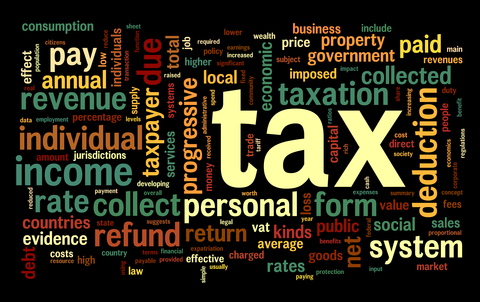 In the President’s State of the Union Address on January 20, 2015, he laid out some tax proposals designed to raise revenues to fund a number of new federal programs (e.g., free tuition for everyone at community colleges). I don’t want to appear political, but I’m compelled to comment on two provisions that gave me a strong “been there done that” feeling.
In the President’s State of the Union Address on January 20, 2015, he laid out some tax proposals designed to raise revenues to fund a number of new federal programs (e.g., free tuition for everyone at community colleges). I don’t want to appear political, but I’m compelled to comment on two provisions that gave me a strong “been there done that” feeling.
Carryover basis for inherited property
The President suggests that we eliminate the stepped-up basis rule that applies for inherited property. This rule effectively wipes out any untaxed capital gain that the decedent had been sitting on. In its place the President would use a carryover basis (heirs would take over the tax basis of the decedent) so that the untaxed capital gains will be taxed when heirs sell the property.
In theory this sounds fine because it merely taxes what would have been taxed had the decedent sold the assets during his/her life. In practice, it’s a TERRIBLE idea as proven by two attempts to implement carryover basis in the past.
Here is a brief description of my experience with prior carryover basis attempts (warning: this is complicated stuff):
- The concept of carryover basis for inherited property was created by the Tax Reform Act of 1976 and was set to take effect for property inherited from decedents dying in 1977 and later. Heirs and tax practitioners soon realized that it was unworkable (it was impossible in many/most cases to know what a decedent had paid for property or whether that property had originally been acquired by gift or inheritance, and whether any improvements (that would increase basis) had been made. A moratorium was in place until 1978; it was repealed in 1979.
- The concept was brought back in a modified form by the Economic Growth and Tax Relief Act of 2001 for property inherited from someone dying in 2010, the year in which it was slated that there would be no federal estate tax. Ultimately, a modified carryover basis rule could be used at the option of executors of people who died in 2010. If they used the modified carryover basis rule, there would be no estate tax, but if they chose a stepped-up basis, there was a $5 million federal estate tax exemption and a 35% federal estate tax would apply. I have no idea how many estates opted for carryover basis, but I’m sure the number was limited.
While theories about fairness may support the concept of a carryover basis, my experience through both of these prior legislative attempts shows me that it is just unworkable.
My suggestion: Leave the stepped-up basis rule alone.
Increased capital gains rates
Currently, the top rate on capital gains is 20%; most people pay at the rate of 15% and those in the lowest two brackets pay no capital gains tax. The President proposes to raise the top rate to 28%. Again, I think this is a TERRIBLE idea (although not as terrible as carryover basis).
The rate on capital gains (which means gain on assets held more than one year) has gyrated considerably over the years. The last time we had a 28% rate was in 1997, and Congress at that time decided to bring the top rate down to 20%.
Look what other countries do:
- Canada only taxes half of the gain, so you only pay half of your marginal tax rate.
- Great Britain has a top rate of 28%, but exempts gains up to an annual limit (for 2015 this is about $16,500 in U.S. dollars).
- Japan has a 20% rate.
- These countries that have no capital gains tax: Belgium, Belize, Hong Kong, Malaysia, and New Zealand.
A good argument can be made on both sides of this issue:
In favor of a tax rate increase: Why should gains from investments be taxed differently than gains from labor?
Against an increase: Why should gains from investments be taxed when the capital to make them has already been taxed?
My suggestions: Leave the current rates where they are, or reduce/eliminate them as part of comprehensive tax reform. Make the 100% exclusion for gain on the sale of qualified stock permanent and extend it to all startups. Currently, it is restricted to C corporations in manufacturing, technology, retail, and wholesale.
Conclusion
A few weeks ago Senate Finance Committee Chairman Orrin Hatch said, “My top priority for the new Congress will be to reform our nation’s broken tax code. Tax reform is long overdue,” and repeated his seven principles for tax reform. Let’s see if anything can be done in this session of Congress and whether the President’s proposals will play any role.


